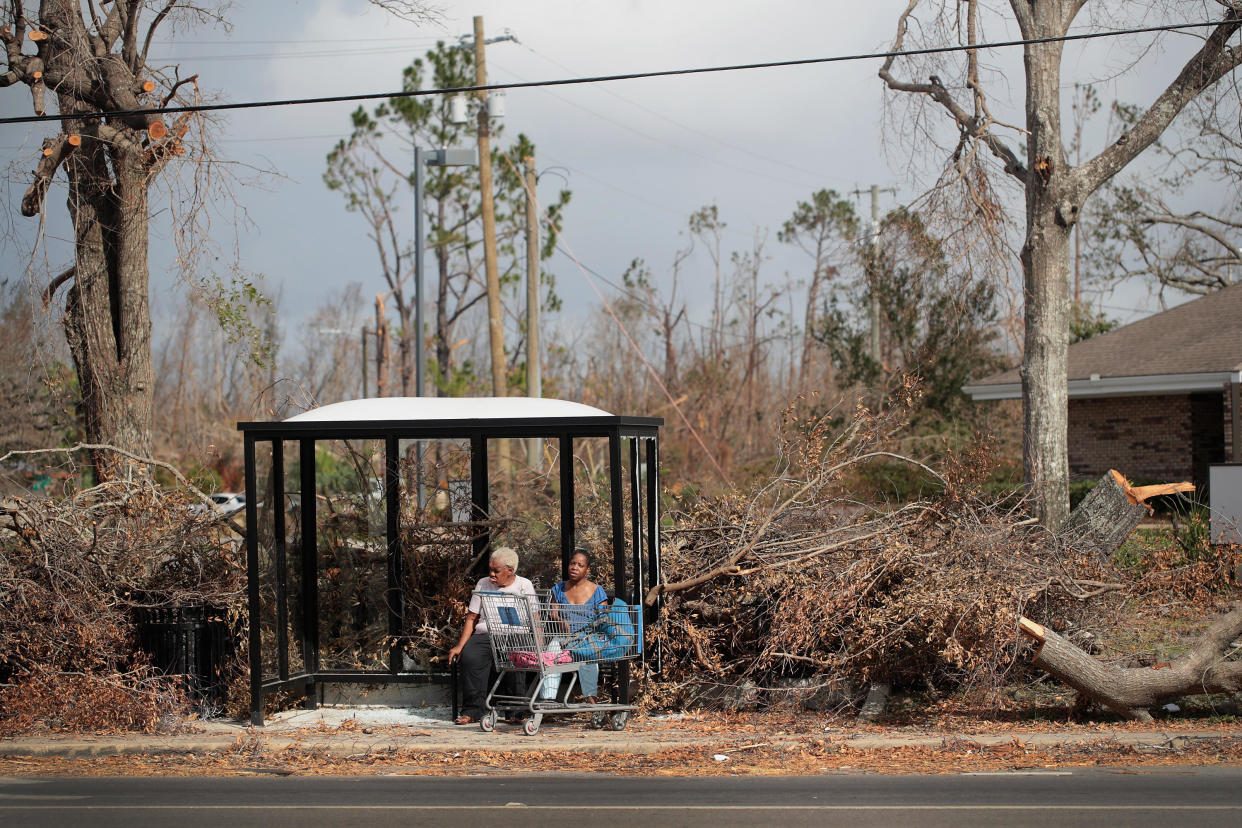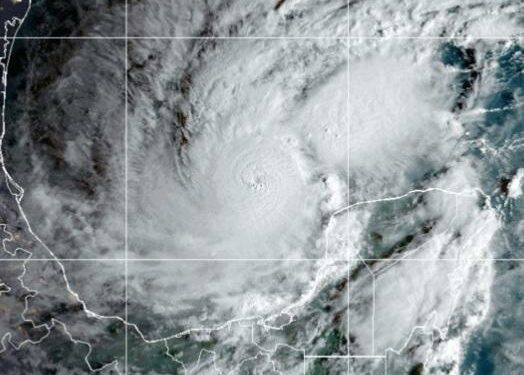Homes were reduced to piles of rubble following Hurricane Andrew. / Credit: Steve Starr/CORBIS/Corbis via Getty Images
It caused $30 billion in damage and more than 40 deaths. It was the costliest natural disaster in the history of the U.S. at the time.
When the 1992 hurricane season ended, the name Andrew was removed from the list of future names for Atlantic tropical cyclones.
Hurricane Michael in 2018
Hurricane Michael barreled into Mexico Beach, Florida, on Oct. 10 with peak winds of 160 mph – making it the strongest storm on record to make landfall in the Florida Panhandle. It was the first Category 5 storm to make landfall on mainland U.S. since Andrew 26 years earlier.

Mary Battles, left, and Shenike Bishop rest in a bus stop damaged by Hurricane Michael on Oct. 20, 2018 in Panama City, Florida. / Credit: Scott Olson / Getty Images
The cyclone was initially measured as a Category 4 storm, but forecasters upgraded it in April 2019 after conducting a detailed post-storm analysis.
At least 74 deaths were attributed to the storm – including 59 in the U.S. and 15 in Central America.
Michael caused an estimated $25.1 billion in damages.
Historic Category 5 storms
Here are the names of the estimated 42 tropical cyclones that have reached Category 5 intensity since 1924:
“Cuba” – 1924 “San Felipe II Okeechobee” – 1928″Bahamas” – 1932″Cuba” – 1932″Cuba-Brownsville” – 1933″Tampico” – 1933″Labor Day” – 1935Â “New England” – 1938″Great Atlantic” – 1944Â Carol – 1953Janet – 1955Esther – 1961Hattie – 1961Inez – 1966Beulah – 1967Camille – 1969Edith – 1971Anita – 1977David – 1979Allen – 1980Gilbert – 1988Hugo – 1989Andrew – 1992Mitch – 1998Isabel – 2003Ivan – 2004Emily – 2005Â Katrina – 2005Rita – 2005Wilma – 2005Dean – 2007Felix – 2007Matthew – 2016Irma – 2017Maria – 2017Michael – 2018Dorian – 2019Lorenzo – 2019Ian – 2022Lee – 2023Beryl – 2024Milton – 2024
Hurricane Milton now Category 5 storm
Hurricane Milton now a Category 4 storm, headed for western Florida
A young autistic man’s symphonic odyssey
Source link : http://www.bing.com/news/apiclick.aspx?ref=FexRss&aid=&tid=670477888da947019e694312e8e163d9&url=https%3A%2F%2Fwww.aol.com%2Fheres-many-category-5-hurricanes-192733810.html&c=16169350184194758442&mkt=en-us
Author :
Publish date : 2024-10-07 11:27:00
Copyright for syndicated content belongs to the linked Source.












